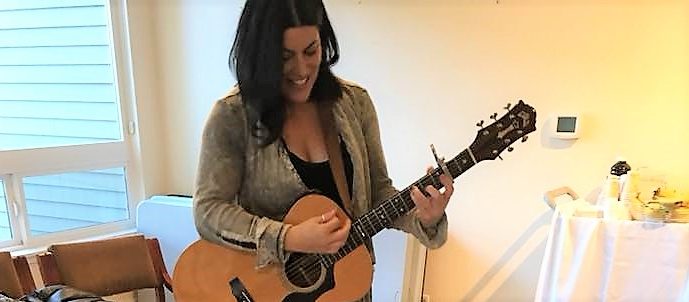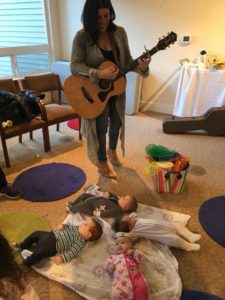Since the shootings in Pittsburgh, there have been highly publicized tensions between African American and Jewish American figures. But why is there a special historical relationship between blacks and Jews? What are the causes that unite and what divides?
“African Americans and Jewish Americans have interacted throughout much of the history of the United States. This relationship has included widely publicized cooperation and conflict, and—since the 1970s—has been an area of significant academic research. Cooperation during the Civil Rights Movement was strategic and significant, culminating in the Civil Rights Act of 1964. The relationship has also featured conflict and controversy related to such topics as the Black Power movement, Zionism, affirmative action, and the role of American and Caribbean-based Jews in the Atlantic slave trade.” (Wikipedia)
Professor Ellen Eisenberg will delve into these and other questions in this part of Intersections.
Ellen Eisenberg has taught in the History Department since 1990, and holds the Dwight and Margaret Lear Chair in American History. She teaches courses on American and African American history since the Civil War, American social history, American Jewish history, American immigration history, the 1960s, Reconstruction, and a research seminar called History in the Archives. Several of her courses serve as electives for the American Ethnic Studies program.
Ellen Eisenberg’s research centers on the history of American immigrant and ethnic communities, particularly American Jewish communities. Since the mid-1990s, she has focused on Jews in the Pacific West, with an emphasis on relationships between Jews and other minority ethnic groups. She has written four monographs on Jews in the West, as well as publishing a number of articles and book chapters. The First to Cry Down Injustice? Western Jews and Japanese Removal during WWII (2008), was a National Jewish Book Award finalist. Her a two-volume history of Jews in Oregon was published in 2015 and 2016. Courses she teaches at Willamette University: Nation of Immigrants, American Immigration History, African American History, 1865-present, Topics in American History, 1865-present, History in the Archives, American Jewish History, and History Workshop: Race and Ethnicity in the American West.
Dr. Eisenberg is the author of The Jewish Oregon Story, 1950-2010 (2016), Embracing a Western Identity: Jewish Oregonians 1849-1950 (2015), Jews of the Pacific Coast: Reinventing Community on America’s Edge (co-authored with Ava Kahn and Bill Toll, 2010), The First to Cry Down Injustice? Western Jews and Japanese Removal during WWII (2008), and Jewish Agricultural Colonies in New Jersey, 1882-1920 (1995).
Mark Twain said it best when he said, “no one has an uninteresting life!” This workshop is an opportunity to explore your life and write your stories. Dorothy Dworkin, an experienced author, columnist and writing coach, will offer prompts and suggestions to get you started on writing your stories. She will help you organize your memoir with noncritical feedback from your fellow writers and from her years of experience facilitating the writing process. No experience necessary, only a desire to share your experiences with family, friends and fellow “memoirists.” Class size is limited to 12.
Thursdays
May 2 – 30
11:00 am – 12:30 pm, CG306
Cost: $50.
Register at oregonjcc.org/registration
Nosh + Drash with Rabbi Eve Posen
A monthly discussion covering a wide range of topics that draw on our experiences.
Topics: TBA
Thursdays, May 9 and June 13
3:00 – 4:00 pm
Free and open to the community.
In partnership with Congregation Neveh Shalom
Come study and discuss the Bible with Rabbi Isaak at Neveh Shalom.
The More Who Die the Less We Care: Confronting Genocide and the Deadly Arithmetic of Compassion, talk with Paul Slovic
Most people are caring and will make an effort to assist individuals in need. These same good people, however, often become numbly indifferent when the victims are part of a large group seeking help. Why does this occur? The answer to this question will help us answer a related question that is the topic of this talk with Professor Paul Slovic: Why have good people and their governments repeatedly ignored mass murder and genocide and how can insights from psychological research provide useful guidance to address this problem.
Paul Slovic is a professor of psychology at the University of Oregon and a founder and President of Decision Research. He holds a B.A. from Stanford University (1959) and an M.A (1962) and Ph.D. (1964) from the University of Michigan. He studies human judgment, decision-making, and the psychology of risk. With colleagues worldwide, he has developed methods to describe risk perceptions and measure their impacts on individuals and society. His most recent work examines “psychic numbing” and the failure to respond to mass human tragedies.
He is a past President of the Society for Risk Analysis and in 1991 received its Distinguished Contribution Award. In 1993 he received the Distinguished Scientific Contribution Award from the American Psychological Association. In 1995 he received the Outstanding Contribution to Science Award from the Oregon Academy of Science. He has received honorary doctorates from the Stockholm School of Economics (1996) and the University of East Anglia (2005). He was elected to The American Academy of Arts and Sciences in 2015 and to the National Academy of Sciences in 2016.
Chichester Psalms
Friday, May 10, 6:00 PM (Shabbat Evening Service)
Main Sanctuary
Sunday, May 12, 10:00 AM (Sunday Morning Service)
Trinity Episcopal Cathedral (147 NW 19th)
The Chichester Psalms, one of Leonard Bernstein’s most frequently sung choral works, is adored by singers and audiences alike. Performing the beloved work will be the Choir of Girls, Boys and Adults from Trinity Episcopal Cathedral with organist and Director of Music Bruce Neswick and CBI’s own Kol Echad choir. The performances will be conducted by Ethan Sperry, acclaimed head of the PSU choral program. Free and open to the public.
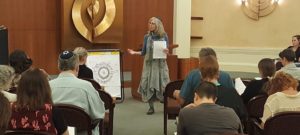
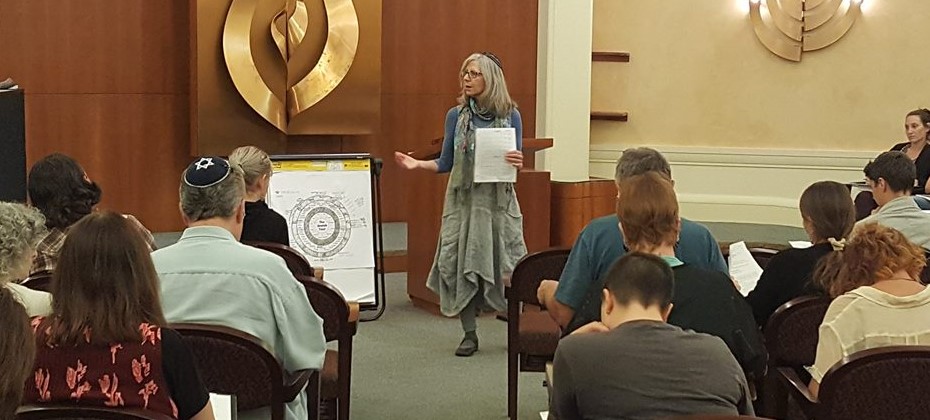
INTRODUCTION TO JUDAISM CLASS
Winter/Spring 2019 Session begins January 17. This 18-week course is taught by members of The Oregon Board of Rabbis, representing a variety of Jewish affiliation. A carefully constructed curriculum includes Jewish history, life cycle events, holidays, ritual and daily practice, theology, study of Torah and contemporary Jewish America. While not a conversion class, most OBR members consider it a prerequisite for students beginning study for conversion. Classes 7-9 pm, Thursdays, at rotating Portland area synagogues, course fee $360 includes class materials. Register online or contact JoAnn Bezodis, Class Facilitator, at 971-248-5465, or by email at info@oregonboardofrabbis.org. Website: http://oregonboardofrabbis.org/introduction-to-judaism-class/
Education Administrator
Remembering Leonard Bernstein
Thursday, May 9, 7:00 PM
Pollin Chapel
CBI congregant Michael Allen Harrison will give a special presentation on Leonard Bernstein. Harrison is a distinguished musician and composer who has recorded more than 50 albums. He is well known here at CBI where he has inspired us with his piano playing during Shir Shabbat and Yom Kippur services.
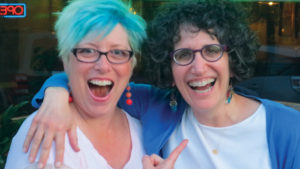
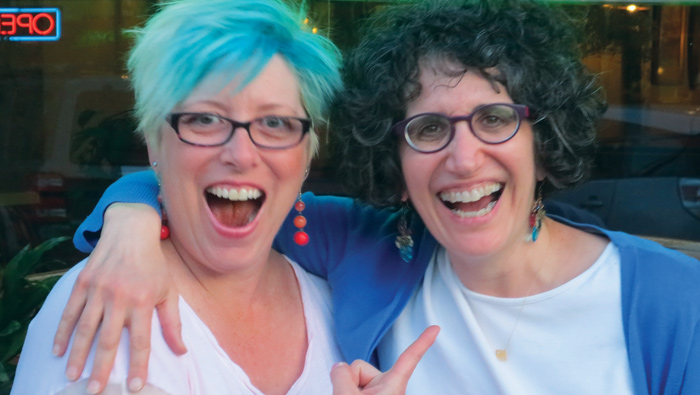
Doors open at 5:30 pm, show starts at 7. Come early to eat, come to drink, come to soak in the view from the lakeside deck … and come to laugh ’til you cry!
Lake Theater’s beer and wine lists represent the best in the industry, and are curated with care; and their cocktails feature seasonal ingredients mixed with never-bottom-shelf spirits. And the pizzas! New York style! Food and drink can be enjoyed in the theater.
The theater features cabaret-style seating on the main floor and traditional velvet seating in the balcony. We can bring the show to almost 100 people at a time!
Designed by celebrated local architect Richard Sundeleaf, the Lake Theater first opened its doors in 1940, charging 25¢ for admission.


